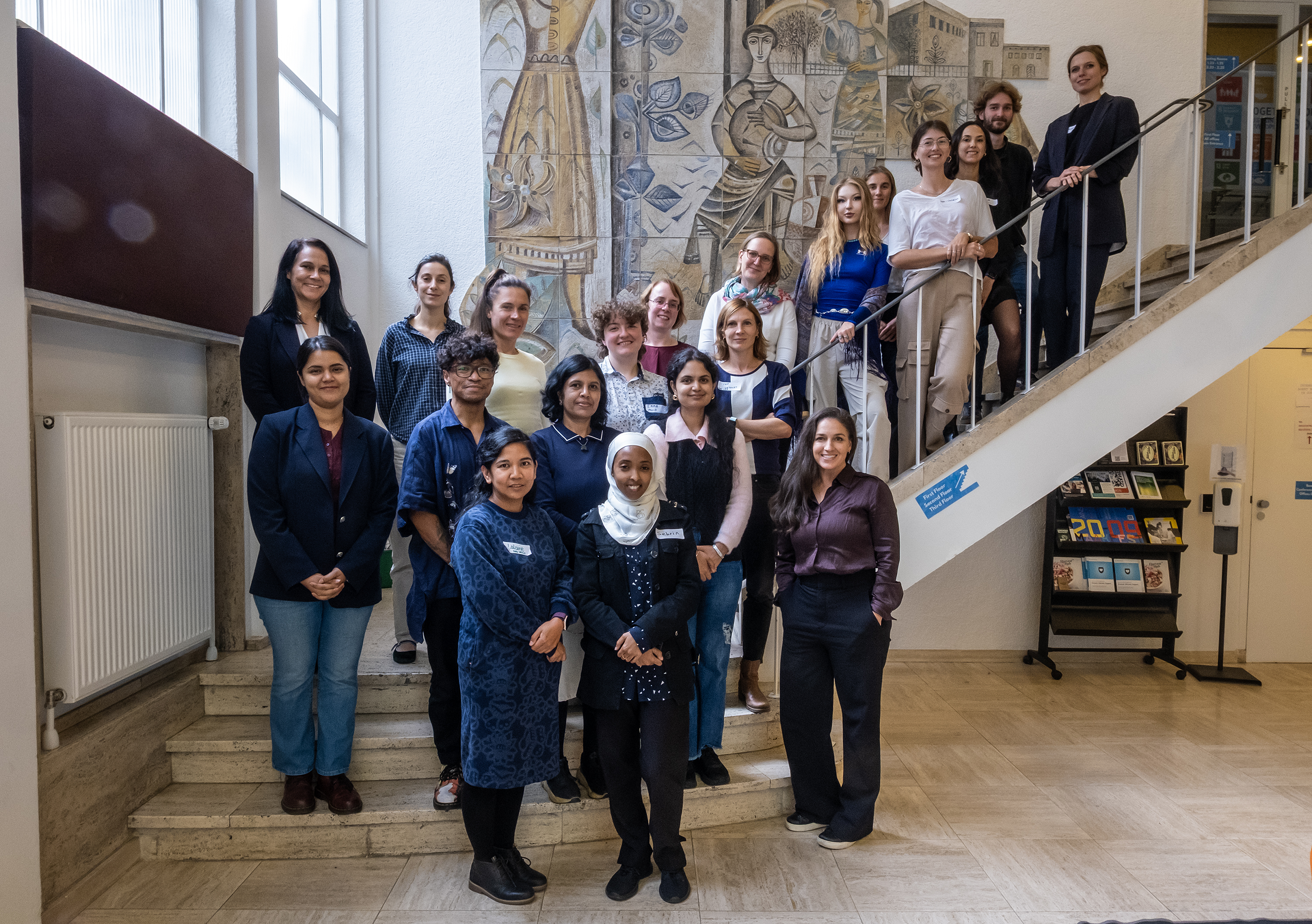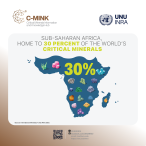
The event was opened by Prof. Dr. Clemens Kool, Interim Director of UNU-MERIT, and Prof. Dr. Melissa Siegel, Professor of Migration Studies, and Chair of the UNU Migration Network. It brought together researchers from across the UNU system — including colleagues from UNU-CRIS, UNU-EHS, UNU-IIGH, and UNU-MERIT — to exchange ideas and showcase their latest work on migration.
The symposium was divided into five thematic sessions spanning: Migration and Health, Climate and Migration Decisions, Migration and Development, Migration Policies, and Measuring Migration. A mix of both ongoing research and early-stage research ‘pitches’ were presented in each area, stimulating lively discussion, knowledge exchange and collaboration opportunities.
The ‘Red Thread’ of Migration: A Day of Inter-Disciplinary Research
In the morning, Sebrin Mohammed Abdullahi highlighted how water scarcity in Sub-Saharan Africa is a gendered issue. Her work explored how water scarcity, migration and gender inequality affect women’s health in Sub-Saharan Africa. Nidhi Nagabhatla and Sanae Okamoto together discussed how climate change and mental health are tied together, reminding us that the impacts of mobility are not only economic but deeply personal. These talks made the case that migration research cannot be separated from questions of health and wellbeing, and that, in this context, careful intersectional perspectives are required.
The links between climate and migration trajectories became even sharper in the session on migration decisions. Manisha Mukherjee showed that rising temperatures in India do not affect everyone equally: caste, dowry, and gender norms shape who has the freedom to move and who does not. Ann-Christine Link discussed planned relocation in Fiji, raising questions about what is lost and gained when parts or whole communities relocate. Taken together, these presentations underscored how climate change not only drives movement (or the lack thereof) but interacts with long-standing cultural structures in ways that matter for millions of lives. The need to hear the voices of at-risk communities themselves was strongly highlighted in these sessions.
Katrin Marchand similarly emphasised the value of bottom-up research in her presentation on the development impacts of migration. Her cross-country comparative analysis finds that communities affected by migration hold highly nuanced views about the opportunities and challenges that migration poses for local development. Rashid Sohail Khan added another layer of complexity to our understanding of development impacts, by showing how parental migration in Pakistan influences child labour outcomes. This presentation underscored how the implications of mobility decisions reach across generations.
The day closed with reflections on how we study and govern migration. Flor Vandevelde, Polina Koriukina and Ilse Ruyssen traced the history of emigration bans, showing how political choices and contexts have long shaped who can leave and who cannot. Their novel mapping shines a spotlight on the long-neglected dimension of emigration regulations in irregular migration processes. Ilse Ruyssen and colleagues presented the development of a global index of migration capabilities, integrating national-level data for a wide range of dimensions to better capture opportunities for and constraints on mobility. Complementing this wide-angle lens, Dan Orendain’s community mapping in Davao City, Philippines, revealed how lived experiences often remain invisible in official statistics. Together, these approaches highlight the importance of making complex migratory dynamics visible at both the global and community scale.
More than any single project, what stood out were the inter-disciplinary conversations that unfolded across the sessions. Migration scholars were in dialogue not only with each other but also as health researchers, climate experts, development specialists, and policy analysts. The strength of the network lies in creating these points of connection, ensuring our research remains both responsive to evolving phenomena and informed by multiple perspectives.
Exchange and Collaboration
More than a ‘conventional’ conference, the annual UNU Migration Network Research Symposium offers an intimate forum for in-depth discussion and new lines of collaboration. A series of ‘research pitches’ allowed network members to present early-stage work and gather critical input. For example, Sanae Youbi and Tobias Hillenbrand invited critical engagement with their respective developing frameworks and ideas. Rossella Marino presented plans for a book proposal on ECOWAS and decolonisation, inviting attendees to contribute further chapters. Talitha Dubow outlined her research on how access to remote work influences migration aspirations, and asked colleagues to help circulate a survey, showing how the reach of the network can become a critical resource in the research process. Claudia Abreu Lopes joined the network for the first time, seeking connections to support a new project on AI for refugee health, and inviting contributions to the development of her open-source mapping of digital and AI policies.
Once more, migration researchers all, but approaching the topic from a variety of disciplines that allow for increased intersectionality and lateral thinking. These moments reminded us that collaboration here in the UNU Migration community is not simply an afterthought, but the foundation of how this network works.
Suggested citation: Emma Clarke, Dr. Talitha Dubow., "Connecting Perspectives: Highlights from the 2025 UNU Migration Network Research Symposium," UNU-MERIT (blog), 2025-10-08, 2025, https://unu.edu/merit/blog-post/connecting-perspectives-highlights-2025-unu-migration-network-research-symposium.



